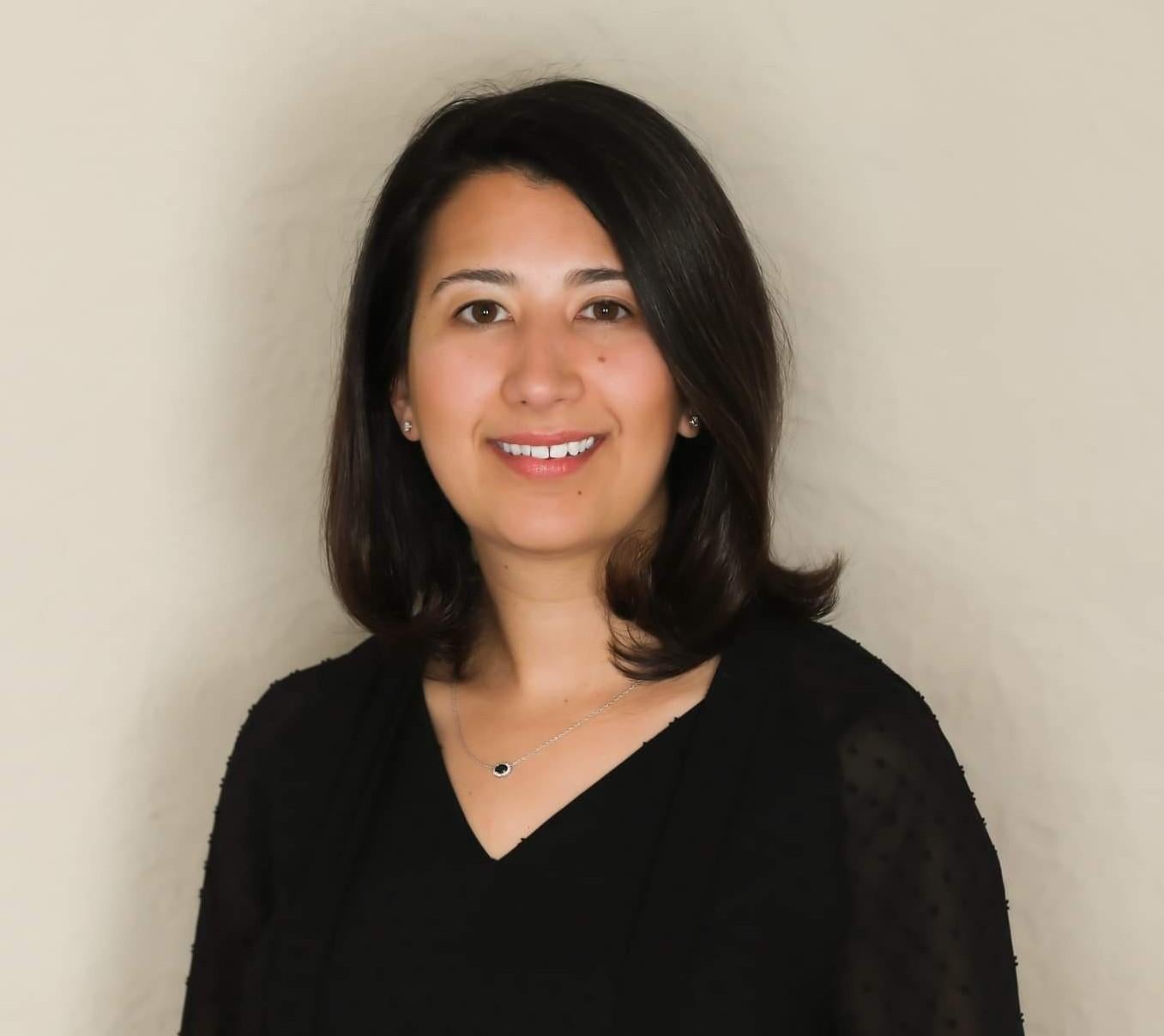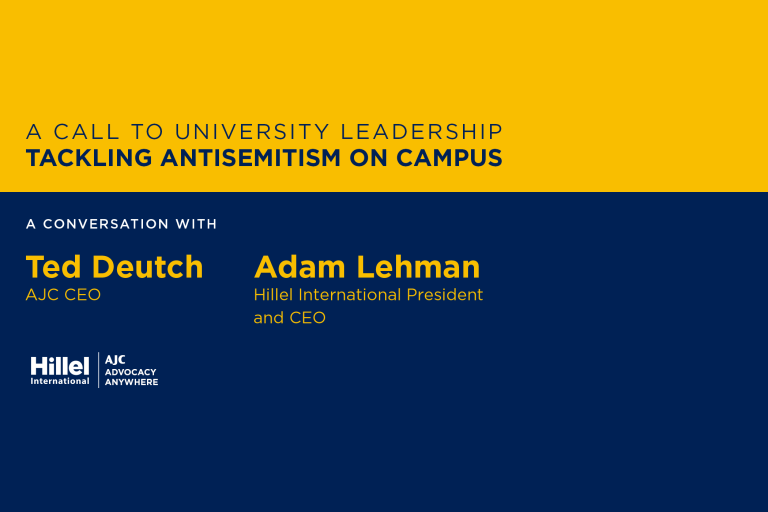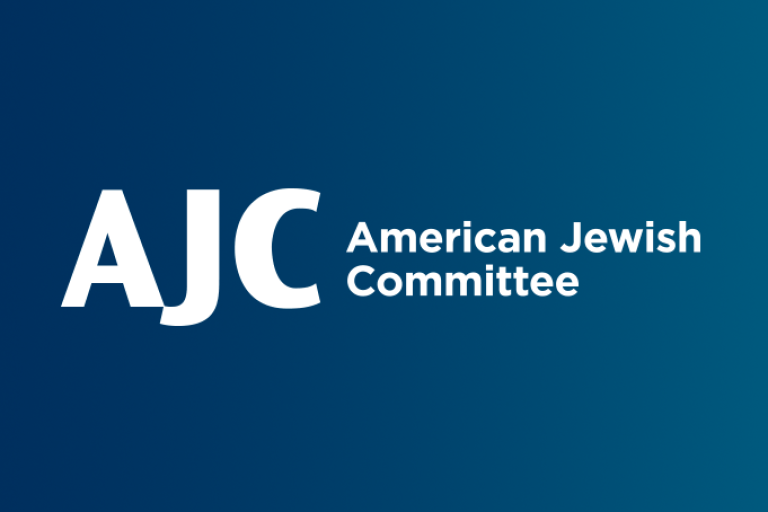August 16, 2021 — New York
This piece originally appeared in JNS.
Six years ago, we met as bright-eyed junior staffers working at American Jewish Committee’s office in Washington, D.C. We were fresh out of college, brimming with ambition and eager to help the Jewish people.
Fast-forward to today, we are two of the youngest members of AJC’s leadership team. While we still believe in a bright Jewish future, we are now confronted with a much darker reality than we have ever experienced and, like many American Jews, we are deeply concerned.
We grew up in a United States in which antisemitism existed but had been relegated to the fringes of public discourse. Modern-day antisemitism was not a regular topic of discussion in our synagogues or Jewish day schools, and fear of antisemitic attacks was not on our radar.
Since we began working at AJC, we have seen that paradigm shift. Antisemitism has emerged in new forms, and is permeating more and more areas of our lives. We’ve seen a rapid growth of incidents, including, in recent weeks, the stabbing of a rabbi in broad daylight. The demonization of Israel and Zionism has not only increased but become part of many progressive circles, and has become a normalized experience on college campuses. The far-right is emboldened and far too comfortable in perpetuating antisemitic conspiracy theories like QAnon. And Jew-hatred has gone viral online through the ever-growing rise and expansion of social media. Many young Jews on these platforms are on the frontlines, under attack, daily, for their identities as Jews and their support for the State of Israel in a way that our parents never experienced.
We aren’t the only ones who feel this way. AJC’s State of Antisemitism in America report found that nine out of 10 American Jews believe that antisemitism is a problem in the United States, and more than four out of five believe that it has increased over the past five years. Looking at our peers, 39 percent of 18- to 29-year-olds thinks antisemitism in the United States is a very serious problem and 50 percent somewhat of a problem. A significant 82 percent of the youngest cohort says it has increased since 2015.
On the bright side, these concerning trends have led to cultural awakening among young Jews around antisemitism. In our personal and professional lives, friends and peers increasingly are coming out of the woodwork, ready to call out and confront Jew-hatred. These newly minted young Jewish activists are tired of suppressing their full Jewish identities in certain spaces. They’re no longer staying silent in the face of antisemitic comments and social-media posts made by those on the far-right, far-left or in their own social circles. They’re passionate, they’re fired up, and they have innovative, creative ideas.
Antisemitism has existed for millennia. On Passover, we recite from the Haggadah, vehi sheamda—“in every generation, they rise up to destroy us.” And in every generation, courageous Jews—often young people—summon the courage to fight back.
The time has come to couple the tenacity and perseverance of the Jewish people with the innovative spirit and drive of millennials and Gen Z to disrupt antisemitism.
While the arc of Jewish history is rooted in the notion of holding onto our traditions and iterating slowly, in our professional work and in many disciplines, young Jews are at the forefront of innovation. Silicon Valley is propelled by the mantra of “move fast and break things.” Too often, the Jewish communal world shies away from this approach, but given the enormity of the challenge, it’s time for a new path. At AJC, we’re humble enough to acknowledge that when it comes to addressing antisemitism, we must be open to all ideas, no one has the monopoly of wisdom, and listening to all viewpoints is critical.
Our peers know that big challenges call for big ideas. We know the value of empowering young Jews, and the need to take seriously their ideas and perspectives.
To do just that, AJC has launched Disrupt Antisemitism, a new initiative that is the first-ever incubator for young American Jews focused solely on developing bold ideas to combat antisemitism. Inspired by the incubators of Silicon Valley, we are calling on young Jews from around the country to submit bold ideas to take on antisemitism locally, nationally or virtually. We are looking for impactful ideas developed by and for young people. Winning proposals will receive up to $10,000 in seed funding from AJC, along with access to AJC expertise and mentorship from leaders in the fields of advocacy, finance and tech as they bring their ideas into reality.
None of us alone can end antisemitism, but with fresh thinking, our generation can bring about change. Antisemitism is a hatred committed by non-Jews, but it is incumbent on us—the Jewish future—to take action. If we don’t make fighting antisemitism a priority, then who will?
It’s time to move fast and break things.
So, how will you disrupt antisemitism?
Meggie Wyschogrod Fredman is American Jewish Committee’s director of the Alexander Young Leadership Department. Belle Etra Yoeli is American Jewish Committee’s chief communications and innovation officer.




